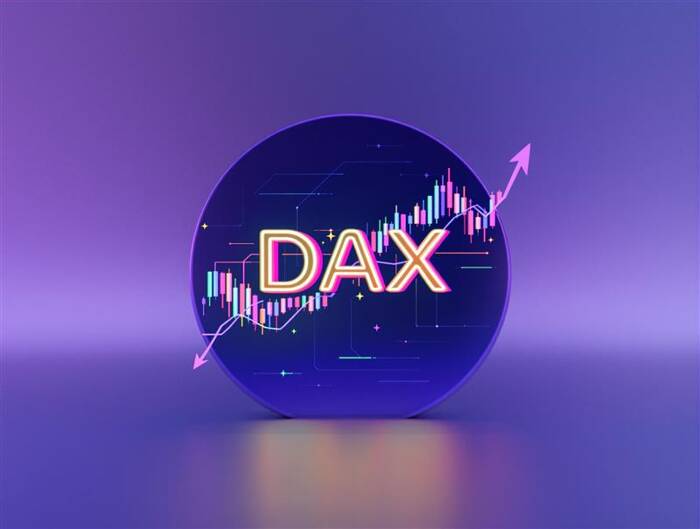FX Empire – German Retail Sales
However, German GDP numbers will likely have more weight. Economists expect Germany’s economy to contract 0.1% quarter-on-quarter in Q2 after expanding 0.4% in Q1.
A sharper contraction and concerns about the potential impact of the US-EU trade deal on demand for German goods could weigh on DAX-listed stocks. On the other hand, an unexpected expansion may lift sentiment.
Wall Street Drops Ahead of the Fed’s Rate Decision
US markets posted losses on July 29 as market focus shifted to the Fed’s interest rate decision and Fed Chair Powell’s press conference. The Nasdaq Composite Index and the S&P 500 dropped 0.38% and 0.30%, respectively, while the Dow fell 0.46%.
Recent US economic data have signaled a robust US economy, easing bets on multiple Fed rate cuts. Consumer Confidence Index rose from 95.2 in June to 97.2 in July, signaling a potential pickup in spending. Given that private consumption accounts for over 60% of the US GDP, rising consumption would cool recession fears but may fuel demand-driven inflation. A higher inflation outlook could temper Fed rate cut bets.
Additionally, concerns about tariffs fueling inflationary pressures could leave the Fed in a policy holding pattern through the remainder of the year.
A more hawkish Fed rate path could raise borrowing costs, impacting corporate earnings and share prices.
US Labor Market and GDP Data in Focus
Later in the Wednesday session, US economic data will fuel speculation about the timeline for a Fed rate cut. Economists expect the ADP to report a 78k rise in employment in July, reversing June’s 33k drop. Steady labor market conditions may bolster wage growth, supporting consumer spending. On the other hand, another fall could boost Fed rate cut bets, raising demand for risk assets such as the DAX.

